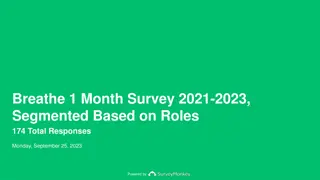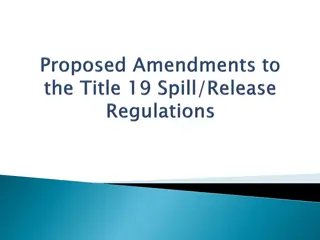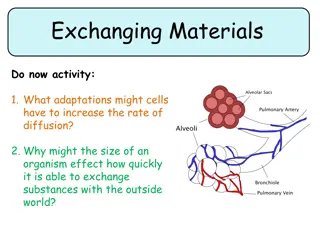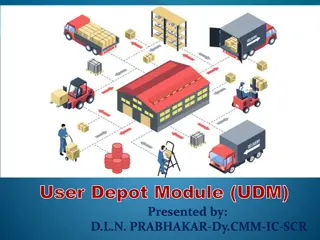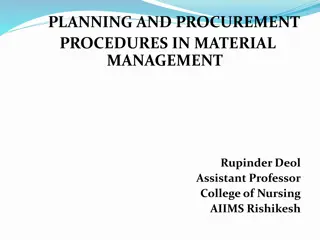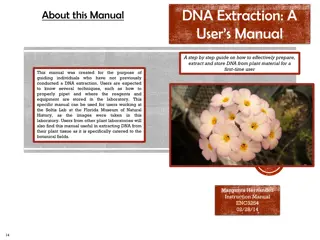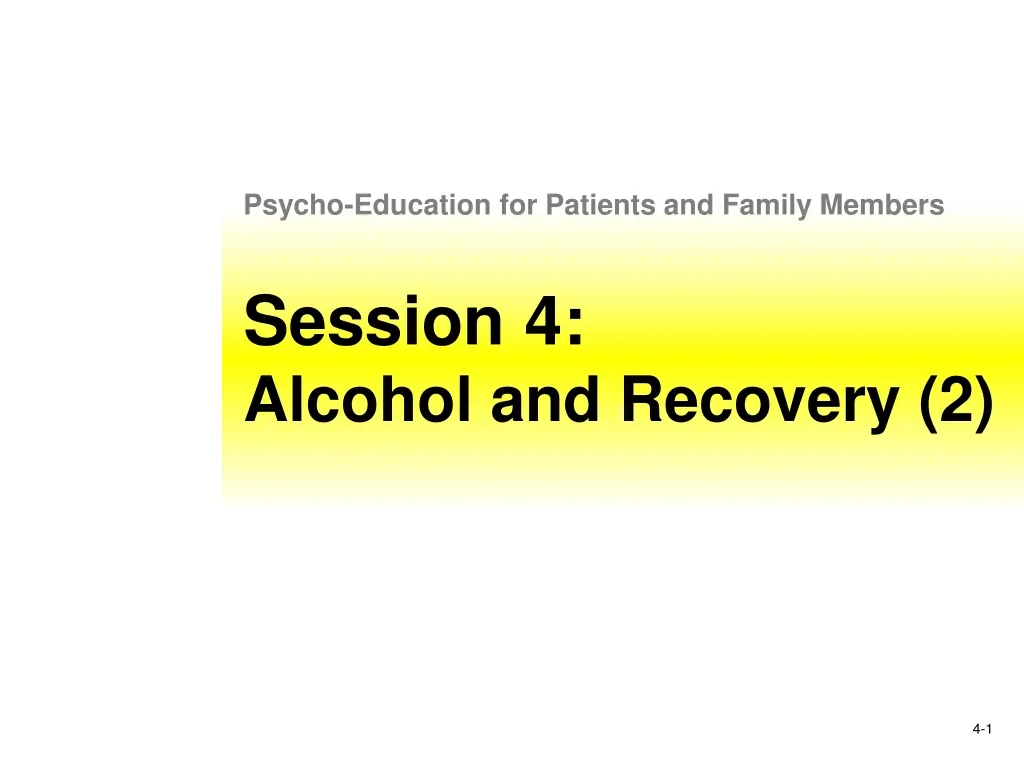
Alcohol and Recovery: Understanding the Risks and Impacts on Patients and Families
Explore the risks associated with alcohol use during recovery from drug dependence, focusing on the impact on women, pregnancy, and fetal alcohol spectrum disorders (FASD). Learn why total abstinence is crucial for successful recovery and why individuals in treatment are advised to avoid alcohol to prevent relapse and dependency issues. Discover the cognitive, behavioral, and physical implications of FASD on children and how alcohol consumption can hinder the recovery process.
Download Presentation

Please find below an Image/Link to download the presentation.
The content on the website is provided AS IS for your information and personal use only. It may not be sold, licensed, or shared on other websites without obtaining consent from the author. If you encounter any issues during the download, it is possible that the publisher has removed the file from their server.
You are allowed to download the files provided on this website for personal or commercial use, subject to the condition that they are used lawfully. All files are the property of their respective owners.
The content on the website is provided AS IS for your information and personal use only. It may not be sold, licensed, or shared on other websites without obtaining consent from the author.
E N D
Presentation Transcript
Psycho-Education for Patients and Family Members Session 4: Alcohol and Recovery (2) 4-1
Alcohol and Women Compared with men, women develop alcohol-related disease more quickly and with less alcohol. 4-2
Alcohol and Pregnancy Babies born to mothers who drank during pregnancy may have mental retardation or other learning and behavioral problems. 4-3
Fetal Alcohol Spectrum Disorders The most serious risk during pregnancy is fetal alcohol spectrum disorders (FASD). FASD is the leading known cause of mental retardation. 4-4
Fetal Alcohol Spectrum Disorders Cognitive and Behavioral Impairments Behavioral and neurological problems associated with FASD may lead to poor academic performance and legal and employment difficulties in adolescence and adulthood. 4-5
Fetal Alcohol Spectrum Disorders Craniofacial Features Small head circumference Skin folds at corner of eye Small eye opening Low nasal bridge Small midface Short nose Indistinct philtrum (groove between nose and upper lip) Thin upper lip 4-6
Questions: Do you think it is a good idea to drink alcohol in recovery from drug dependence? Why do you think so? 1-7
Total Abstinence Patients in treatment of drug dependence are asked to stop using allillicit drugs and alcohol. People in recovery who drink alcohol are 8 times more likely to relapse to stimulant use than those who don t drink. 4-8
Other Reasons for Abstaining Drinking prevents people in recovery from directly confronting their stimulant use disorder. Drinking puts people in recovery at risk of becoming dependent on alcohol. 4-9
Question: What are some triggers for alcohol in each category? People Places and situations Materials Feelings 1-10
Alcohol Triggers Are Everywhere Advertisements Movies TV shows Friends and family who drink Celebrations and holidays 4-11
Internal Triggers Depression Anxiety Loneliness Stress Anger Guilt 4-12
Relapse Risk Posed by Alcohol Alcohol Lowered inhibitions Add a trigger, and the result may be impulsive use of stimulants 4-13
Question: What are possible ways that you can prepare to avoid drinking alcohol? 1-14
Plan Not To Drink Think about other ways of celebrating. Avoid being around others who are drinking. Think about other ways of spending time with friends. Make friends with others in recovery. Practice saying no thank you. Avoid going to bars and parties. Talk to your family. 4-15
Plan To Cope Attend 12-Step or self-help group meetings. Discuss your feelings in group. Practice relaxation techniques. Practice HALT (not becoming too Hungry, Angry, Lonely, or Tired). Remind yourself that uncomfortable feelings are normal and will pass. Obtain help from a therapist. 4-16






